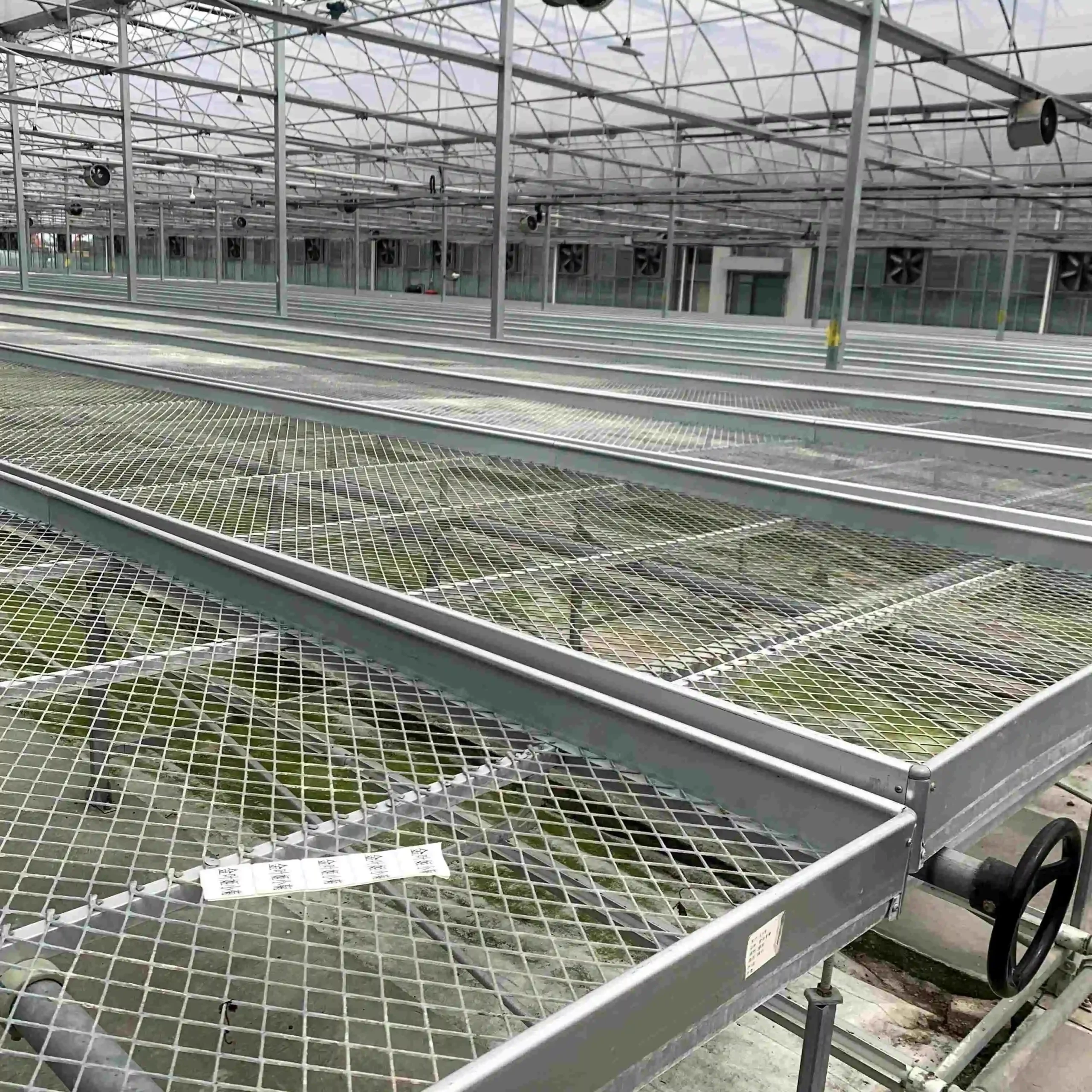In the realm of greenhouse farming, polycarbonate greenhouses have emerged as a popular and innovative choice for growers worldwide. With their exceptional durability, light transmission properties, and insulating capabilities, polycarbonate green houses offer numerous advantages over traditional glass or plastic structures. In this article, we will explore the benefits and features of polycarbonate greenhouses and their significance in shaping the future of sustainable and efficient agriculture.

Durability and Strength:
Polycarbonate is a thermoplastic material known for its exceptional strength and impact resistance. Polycarbonate greenhouses can withstand harsh weather conditions, including high winds, heavy snow loads, and hailstorms. Unlike glass, which is fragile and prone to breakage, polycarbonate panels provide long-lasting structural integrity, ensuring the protection of crops and extending the lifespan of the greenhouse.
Light Transmission:
One of the most significant advantages of polycarbonate greenhouses is their excellent light transmission properties. Polycarbonate panels allow a high percentage of natural sunlight to penetrate while diffusing it evenly throughout the greenhouse. This diffusion minimizes shadows and ensures uniform light distribution, promoting optimal photosynthesis and growth for plants. Furthermore, polycarbonate panels can filter harmful UV rays, protecting crops from potential damage.
Thermal Insulation:
Polycarbonate’s inherent insulating properties make it highly effective in maintaining stable temperatures within the greenhouse. The multi-wall construction of polycarbonate panels creates air pockets that act as thermal barriers, reducing heat loss during colder periods and heat gain during warmer seasons. This insulation capability helps growers achieve energy efficiency, minimize heating and cooling costs, and create a more controlled and favorable environment for plant growth.
Lightweight and Easy Installation:
Compared to traditional glass structures, polycarbonate greenhouses are lightweight, making them easier to transport and install. The lightweight nature of polycarbonate panels simplifies the construction process, reducing time and labor requirements. Additionally, the flexibility of polycarbonate allows for customized designs and easy integration with various greenhouse components, such as ventilation systems, shade screens, and irrigation setups.
UV Stability and Longevity:
Polycarbonate panels are engineered to resist degradation caused by prolonged exposure to UV radiation. They are coated with UV protectants to ensure long-term stability and prevent yellowing or brittleness over time. This UV resistance extends the lifespan of polycarbonate greenhouses, offering growers a reliable and durable structure that can withstand years of continuous use without compromising light transmission or structural integrity.
Design Flexibility and Adaptability:
Polycarbonate greenhouses provide design flexibility to meet the specific needs of different crops and growing techniques. The panels can be easily shaped, bent, or curved to create customized structures, such as arched roofs or gable ends. The adaptability of polycarbonate greenhouses allows growers to optimize space utilization, implement efficient ventilation systems, and accommodate vertical growing methods or specialized cultivation systems.
Sustainability and Environmental Friendliness:
Polycarbonate is a recyclable material, contributing to the sustainability of greenhouse farming. Its energy-efficient properties reduce the reliance on artificial lighting and climate control systems, minimizing energy consumption and carbon emissions. Furthermore, the durability and longevity of polycarbonate greenhouses reduce the need for frequent replacements, resulting in less waste generation over time.
Polycarbonate greenhouses represent a significant advancement in greenhouse farming technology. With their durability, exceptional light transmission, thermal insulation, and design flexibility, they offer an array of benefits for growers. As the agricultural industry continues to embrace sustainable practices and adapt to changing climatic conditions, polycarbonate greenhouses provide a path towards efficient, resilient, and environmentally friendly cultivation. By harnessing the potential of polycarbonate, growers can create optimal growing environments, maximize crop yields, and pave the way for a greener and more productive future in agriculture.